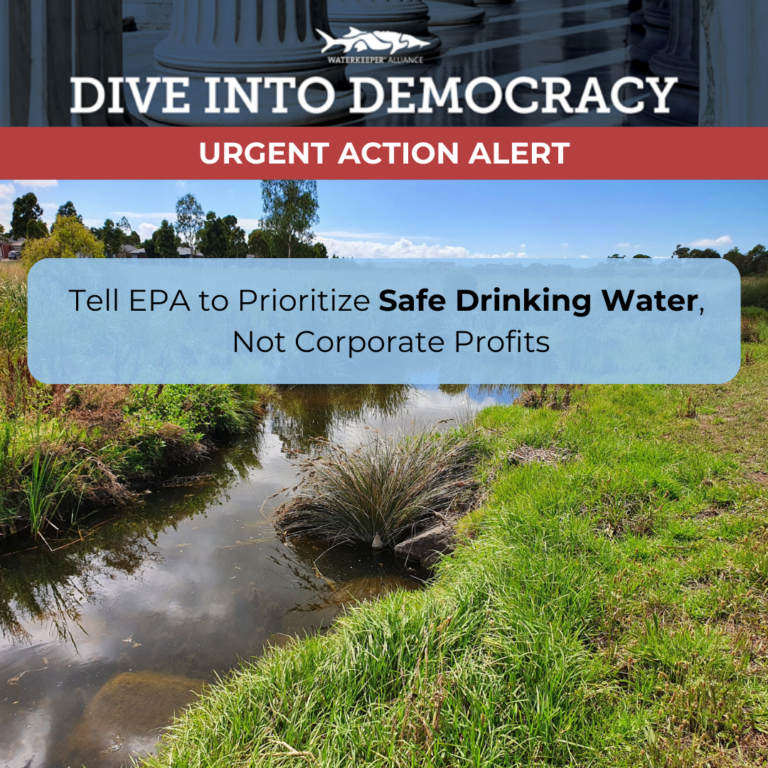Tell EPA to Prioritize Safe Drinking Water, Not Corporate Profits
By: Thomas Hynes

The U.S. Environmental Protection Agency (EPA) has announced plans to revise the definition of ‘waters of the United States’—a critical term in the Clean Water Act that determines which rivers, streams, wetlands, and other waters are protected under federal law. A Supreme Court case already massively reduced the number and types of waterbodies that receive protection, effectively opening the door for polluters to jeopardize our drinking water, public health, environment, and economy. We cannot afford to further weaken these vital protections.
Will you join us in urging EPA to offer the broadest possible protection for American waterbodies?
Water plays a crucial role in shaping the United States, from the Colorado River, which provides drinking water to millions, to the Everglades that sustain diverse ecosystems, to the local creeks in our own backyards. Water is the foundation of everyday life and the economic vitality of all communities. If a waterbody is not included in the Clean Water Act definition of “waters of the United States,” then industrial waste and municipal sewage (e.g. toxins, pathogens, carcinogens, and radioactive materials) can be dumped without federal treatment or pollution controls. This can contaminate drinking water supplies, kill fish in rivers and lakes, and make children sick when they go swimming.
This is not hypothetical doomsaying, it was a commonplace fact before the landmark 1972 Clean Water Act. Rivers burned, ecosystems perished, polluters ran rampant, and communities suffered.
We cannot go back.
A clear, broad regulatory definition of “waters of the United States” is critical for protecting the drinking water for millions of Americans, reducing the public’s exposure to toxic metals and pollution, and preventing the contamination of thousands of miles of waterways across the country. That definition should not be revised to exclude even more rivers, streams, wetlands, and lakes from clean water protections for the benefit of industrial polluters.
Letting pollution flow into our shared water resources without protections will endanger communities and public health by way of contaminated drinking water. We may take safe drinking water for granted, but that luxury was hard fought. And if we are not vigilant, it can all go away.
Furthermore, weakening water protections will jeopardize countless wetlands. These waterbodies may not immediately connect to ‘navigable waters’ but they are still incredibly valuable. For starters, wetlands absorb massive amounts of carbon dioxide and act as the earth’s kidneys by filtering water pollution. They also serve as a habitat for countless species and decrease the threat of flooding. Polluting a wetland not only risks the health of the wetland, but also the health of the rivers and streams to which they are connected.
EPA says they must revise the definition of “waters of the United States” in order to lower the cost of doing business. Yet, eliminating clean water protections would be a disaster for the economy, as EPA’s calculus does not factor in higher utility bills, exorbitant cleanup costs, flooding disaster damages, healthcare expenses, reduced agricultural production, and lost business opportunities. Polluting smaller streams also contaminates downstream waters, decimating fisheries and recreational waters, jeopardizing businesses and agricultural production, and increasing local water treatment plant costs.
We need EPA to prioritize people over corporate profits.
Leave your own personalized comment today in support of fully protecting American waterways!